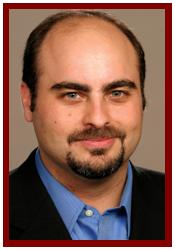By RP Nation, on Mon Feb 20, 2012 at 1:30 PM ET  David Host: Rebuttal #4 David Host: Rebuttal #4
[Artur Davis’ Provocation, Robert Kahne’s Rebuttal #1, Ron Granieri’s Rebuttal #2; The People’s Rebuttal #3]
I begin by offering a full-throated “amen” to Ron Granieri’s remarks regarding Jerry Ford’s presidency. While many Republicans seem to view Reagan as the progenitor of today’s Republican Party, Ford may be the reason why the Republican Party still existed in 1980.
Despite its brevity, Ford’s tenure offers more than its share of food for thought regarding the character of effective presidential leadership. As Ron points out, Ford indeed represented the quintessential “manager;” a moderate who was ultimately guided by what he perceived as the demands of the time. Far from the accommodationist caricature painted by his critics on the right, Ford did not hesitate to strike out on his own when necessary. While the Nixon pardon offers the ultimate measure of this characteristic (the fact that he received the 2001 John F. Kennedy Profile in Courage Award demonstrates long-overdue liberal respect for this decision), Ford’s economic record also demonstrated a unique mix of toughness and pragmatism.
Taking office in the midst of the Arab oil shocks of 1973-74, Ford identified inflation as the chief focus of his economic policy. Widely-derided at the time – and largely forgotten since – Ford’s “Whip Inflation Now” moniker reflected Ford’s deeply ingrained sense that inflation constituted the chief threat to long-term economic growth. Initially proposing a mixture of tax increases and budget cuts, Ford later embraced a program of modest tax cuts paired with spending restraint (the latter generating a series of vetoes which strained his relationship with the large Democrat majorities in Congress). These policies worked: inflation in 1976 was 5.75%, as compared to 11.03% in 1974. GDP grew at a rate of 5.4% in 1976 (after contracting -0.6% and 0.2% in 1974 and 1975, respectively), while unemployment fell from a high of 9% in May 1975 to 7.8% in December 1976. The subsequent unraveling of the economy began with Jimmy Carter’s early 1977 “stimulus package” that failed to recognize the brisk growth Ford had bequeathed to him. Matters grew worse, of course, with the second series of oil shocks in 1979.
Read the rest of…
The RPs Debate Presidential Greatness: David Host Rebuts
By Ronald J. Granieri, on Mon Feb 20, 2012 at 10:30 AM ET  Ron Granieri: Rebuttal #2 Ron Granieri: Rebuttal #2
[Artur Davis’ Provocation, Robert Kahne’s Rebuttal #1]
These days, when people speak abstractly about the kind of President the country needs, they usually say that it should be someone with legislative experience, who can reach across the aisle to compromise with the other party, who can make difficult decisions, and who enjoys the respect, even friendship of other world leaders, thus improving the international standing of the United States.
In my lifetime, we had just such a President, and no one appreciated him much. He still receives only occasional credit from history and policy geeks, and makes little impression on the public memory, never showing up on anyone’s list of the greatest Presidents. And yet, the closer you look at the actual record, the more of a gem he appears to have been.
I am talking of course about Gerald R. Ford.
I can hear the gasps now. Wait, you say, you mean the guy who fell down the stairs of Air Force One and helped launch the career of Chevy Chase and “Saturday Night Live?” The guy whose name graces the title of one of John Updike’s lamer late novels? The guy who pardoned Richard Nixon? That Gerald Ford?
Read the rest of…
The RPs Debate Presidential Greatness: Ron Granieri Rebuts
By Robert Kahne, RP Staff, on Mon Feb 20, 2012 at 9:30 AM ET Robert Kahne: Rebuttal #1
[Artur Davis’ Provocation]
I think it’s time to throw a bit of kerosene into this debate and see what catches on fire.
I’ve only been alive for a quarter century–a long enough time to see a mere five presidencies. All five of the men who have held the highest office in the United States since my birth have their detractors, but I believe there exists one President who will be held in the highest esteem by future generations; as well as the man I believe to have held the office with the most courage, created the most positive change, and wielded greatest political acumen. That man is the current President: Barack Obama.
With a political science major, you can pick apart nuanced political issues.
It is extremely difficult to abstract from the present when it comes to judging Presidents. Consider the cases of men like James K. Polk and Harry S Truman: it took our country decades in order to give these men the accolades they deserved. However, as a student of policy and of political science, I believe President Obama will go down in history as one of our greatest Presidents regardless of the outcome of the election in November.
Read the rest of…
The RPs Debate Presidential Greatness: Robert Kahne Rebuts
By Artur Davis, on Mon Feb 20, 2012 at 8:30 AM ET Over the past month, we’ve launched a new tradition at The Recovering Politician: a great virtual debate on the issues of the day among our recovering politicians; with provocations, rebuttals, responses, and defenses. Our first discussion focused on presidential leadership; our second on legalizing marijuana; our third, Tim Tebow; our fourth, expanded gambling, and our fifth, the GOP primary mudfest.
On this Presidents’ Day, Artur Davis leads off a discussion on presidential greatness. What makes a president stand out among others? Who are the greatest chief executives of our lifetime? Join in the fun:
Let’s assume that there are two presidents whose greatness is not is dispute: Lincoln and FDR, both won defining wars that might have gone the other way absent superior leadership; both defined their political times by in Lincoln’s case, creating a new party, and in FDR’s case, re-conceiving a stagnant, fading party into a modern progressive one. I would venture there are three others who weren’t tested quite as severely but who dramatically strengthened the country and the office of president: Washington (who affirmed that the country was governable as a republic) Thomas Jefferson (who affirmed that the country’s future was westward, and expansionist) and Teddy Roosevelt (who enshrined the ideal of restraining corporate power and size, and who did so in an era when both parties were dominated by economic conservatives).
Then for good measure, throw in Andrew Jackson and Harry Truman at the bottom of the top tier, for all their petty prejudices and their small-mindedness toward their enemies, both had their transcendent moments: Jackson democratizing a country that was veering toward becoming an oligarchy, and Truman shoring up vulnerable democracies from Greece to Israel, and as a result, denying the Soviet Union ownership of the second half of the 20th Century.
Is there a modern president who makes a claim for membership on that list? I’m spending a lot of my time now at an institution that venerates John Kennedy. The argument for Kennedy is that he revitalized the ideal of civic commitment at a time when McCarthyism and fifties materialism had gutted it; that his decision-making skills in the Cuban Missile Crisis averted a nuclear war; and that he gave the cause of civil rights a moral boost at a time when it desperately needed it. The case against Kennedy is that his thousand or so days was too brief, too devoid of serious legislative accomplishments; that he laid the foundation for a disaster in Vietnam,; and that he was too late to the cause of civil rights to deserve much credit for it.
Read the rest of…
The RPs Debate Presidential Greatness: Artur Davis Provokes
|
The Recovering Politician Bookstore
|










